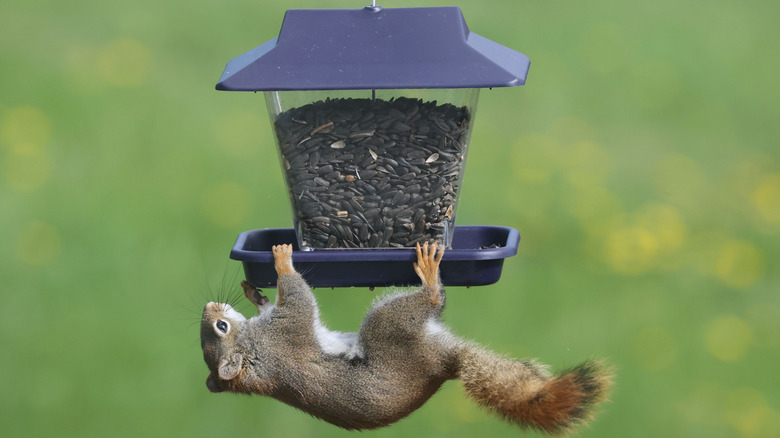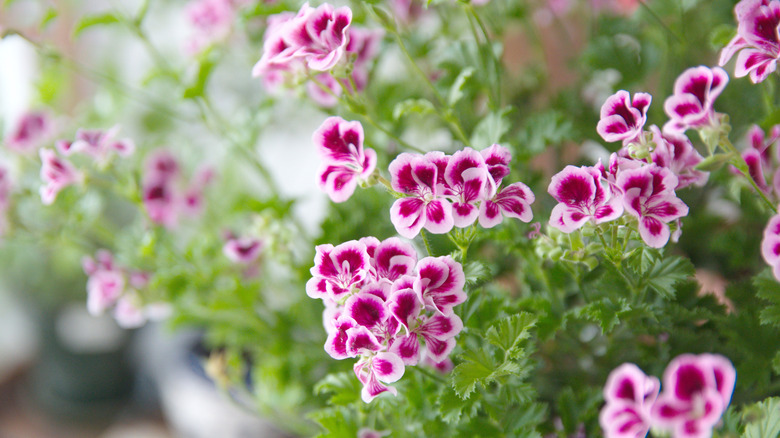The Fresh-Smelling Flower That Can Help Protect A Bird Feeder From Squirrels
If squirrels are turning your bird feeder into a buffet, there's a surprisingly fragrant fix that doesn't involve traps or pricey baffles. Pelargoniums — commonly, but confusingly, also called Chinese geraniums — may not be the obvious choice, but some species of this genus emit scents that squirrels can't stand. Specifically, Pelargonium tomentosum (peppermint-scented) and Pelargonium crispum (citrus-scented) are known for their strong aromas, which experts say can serve as natural squirrel deterrents.
According to Julia Omelchenko, botany expert at Plantum, shared with Homes & Gardens that the pungent oils in these plants act as olfactory roadblocks for foraging rodents. The scent profile may help mask food smells or simply irritate the squirrel's sensitive nose. While this plant-based tactic isn't a silver bullet, placing Pelargoniums in planters at the base of your feeder or integrating them into nearby flower beds could help reduce uninvited squirrel friends.
These plants thrive in full sun with well-drained soil. Luckily, these conditions mirror those that many bird feeders already demand. Bonus: Unlike sprays that require constant reapplication, pelargoniums offer low-maintenance protection with an aesthetic add-on. Just don't expect miracles if your neighborhood squirrels are particularly hungry or smell-insensitive; companion deterrents like seed trays or regular ground cleaning are still essential for optimal results.
Pretty deterrent or garden placebo? What to know before planting Pelargoniums
Before you rush to your local nursery, it's worth understanding the limits of pelargoniums. While their scent might discourage squirrels from approaching, they don't offer a force field of rodent repulsion. There are simple solutions, such as basic tidying up, to keep squirrels from zeroing in on dropped seeds that quickly lead them to the feeder itself. That means the best defense might still be cleanliness: Raking under your feeder and using seed trays to catch spills can make your garden less appealing to the furry rascals, regardless of plant life.
Still, Pelargoniums aren't snake oil. They've been recognized as effective against a range of pests, including deterring pesky mice, thanks to their high concentration of monoterpenes like citronellol and geraniol. These compounds are known irritants and depressants for rodents. What Pelargoniums offer is a low-effort, dual-purpose solution — visually appealing and potentially pest-deterring. (Ironically, recent research suggests that geraniol may also counteract patterns of heightened stress in rodents, mirroring the fundamental poison paradox in medicine.)
So, is it worth trying? If you're already battling squirrels and looking to add a touch of charm to your garden, Pelargoniums can play a part in your broader strategy. Just don't rely on them alone to guard your feeder. Pair them with smart cleaning routines and strategic placement, and you might finally outwit your local band of bushy-tailed bandits.

